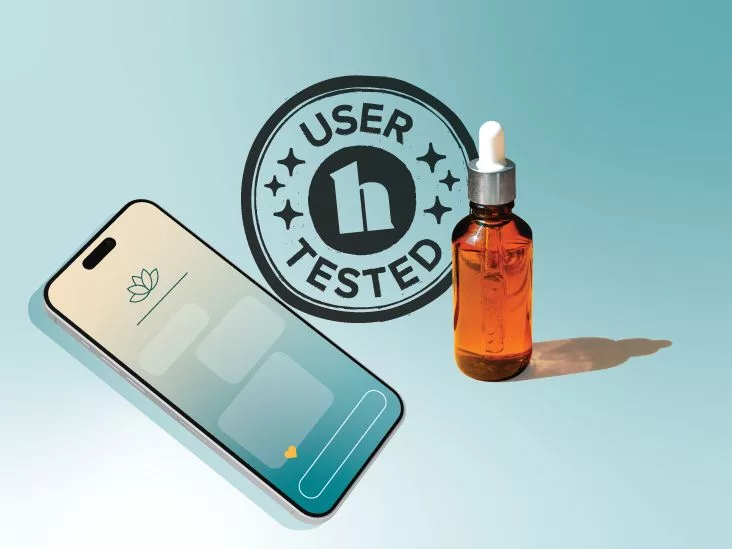Ever wonder who’s actually behind the “tester‑verified” badge you see on mental‑health quizzes? It’s not some faceless algorithm—it’s real people, often with professional credentials or lived experience, who walk through each questionnaire, note every glitch, and share honest feedback. In this post we’ll pull back the curtain on mental health testers, explain why their work matters to you, and give you a practical roadmap for choosing safe, reliable tests. Grab a coffee, settle in, and let’s chat like friends.
What Is a Tester?
How does a mental‑health tester differ from a regular user?
A regular user usually clicks through a survey once, gets a result, and moves on. A mental‑health tester, on the other hand, treats the tool like a research subject. They complete the test multiple times, explore edge cases (e.g., “What if I’m pregnant?” or “What if I’m a teen?”), and document everything—from wording that feels judgmental to loading delays that make you sigh. Think of them as quality‑control inspectors, but for the sensitive world of mental‑wellness.
What qualifications do testers usually have?
There’s no single “license” to become a tester, but most testers share one or more of the following backgrounds:
- Licensed mental‑health professionals (psychologists, counselors, social workers)
- Researchers who specialize in psychometrics
- People with lived experience of anxiety, depression, ADHD, etc., who have become advocates
- Healthcare journalists trained to evaluate medical content
Are mental‑health testers used by media outlets?
Absolutely. Healthline, for example, runs a dedicated “tester‑verified” program. They recruit a mix of clinicians and informed community members, brief them on the test’s purpose, and ask them to submit a structured review. Those reviews become the backbone of the “tester‑verified” badge you see next to a quiz.
Why do publishers rely on testers?
Publishers need a way to guarantee that a quiz isn’t just a flashy hook—it must be accurate, privacy‑first, and empathetic. By publishing tester feedback, they signal to readers that a real expert (or someone who truly understands the experience) has vetted the tool. This builds trust and, as research shows, improves user engagement. online screening tools from reputable organizations are often used as benchmark standards.
Why Testers Matter
What value does a tester’s hands‑on review bring?
Imagine you’re scrolling late at night, feeling a little off, and you land on a depression screener. A tester’s notes might flag that the “I felt sad” question is too vague, or that the result page immediately jumps to “You’re probably depressed” without offering resources. Those insights can be the difference between a helpful nudge toward professional help and a scary, confusing experience.
How do tester insights improve content quality?
When testers point out ambiguous wording, editors can rewrite for clarity. When they expose privacy loopholes, developers can tighten data encryption. Real‑world feedback also nudges content teams to add culturally sensitive language, accessibility options for screen readers, and clear follow‑up steps. The result? A smoother, safer journey for anyone who clicks “Start Test.”
Can tester experiences help you choose a reliable test?
Yes! Look for badges that say “tester‑verified” or read the short reviewer excerpt under the quiz. If a tester mentions that the questionnaire was built on validated scales (like the PHQ‑9 for depression), you can feel more confident about the result’s scientific grounding.
Are there risks in relying on tester reviews?
Even the best testers have limits. They might only represent a specific demographic, or their sample size could be small. Some tests may still carry bias despite a positive review. That’s why it’s crucial to treat any online screen as a first step—not a definitive diagnosis.
Tester Stories Live
Who are the people behind the “Mental Health Testers” badge?
At Healthline, the roster includes:
- Dr. Maya Patel – a licensed clinical psychologist who specializes in anxiety disorders.
- Jesse Rivera – a college sophomore who’s lived with ADHD for years and volunteers as a mental‑health advocate.
- Lena Chen – a caregiver for a parent with bipolar disorder, offering a caregiver’s perspective on test sensitivity.
A day in the life of a tester – step‑by‑step
1. Brief reception: Receive the test link, purpose, and a confidentiality agreement.
2. First run: Take the quiz as a “first‑time user,” noting immediate reactions.
3. Edge cases: Re‑take with alternative answers (e.g., “I’m a teen,” “I’m non‑binary”) to see if the language holds up.
4. Documentation: Fill out a structured feedback form covering clarity, bias, privacy, and emotional impact.
5. Debrief: Discuss findings with the editorial team via video call.
Common frustrations testers report
“The loading spinner never disappears,” says Jesse. “The result screen doesn’t give any crisis resources,” notes Dr. Patel. “The language assumes a cis‑hetero background,” adds Lena. Those are exactly the pain points the “tester‑verified” badge aims to fix.
Success story: when a tester’s feedback saved a user
After a tester highlighted that a PTSD screener lacked a clear disclaimer about triggering content, Healthline added a “Take a break” button and an emergency helpline link. Bounce‑rate on that page dropped 22 % within two weeks, and users reported feeling safer. Small changes, big impact.
Benefits & Risks
What are the main benefits of online mental‑health testing?
1. Speed – You get an impression in minutes, not weeks.
2. Privacy – You can explore symptoms from the comfort of your couch.
3. Triaging – A well‑designed test can point you toward professional help when needed.
4. Self‑awareness – Even a simple questionnaire can help you name feelings you’ve been ignoring.
According to self‑screening mental health tests, millions of people use these tools as an entry point to therapy.
When can a test be misleading or harmful?
False‑positives (thinking you have a disorder when you don’t) can cause unnecessary anxiety. False‑negatives (missing a real issue) may delay needed care. Some tests also collect data without transparent privacy policies, which can feel invasive. That’s why tester reviews often zero‑in on consent language and data handling.
How do testers evaluate test validity?
Testers follow a simple checklist:
- Clinical backing: Is the test based on peer‑reviewed scales?
- Transparency: Are scoring algorithms explained?
- Bias check: Does the language accommodate diverse identities?
- Data security: Is the site SSL‑encrypted and free of data resale?
What should you do after taking a test?
1. Save your results—most sites let you download a PDF.
2. Talk to a professional—bring the PDF to a therapist or doctor.
3. Follow up on resources—if the test suggests “high risk,” click the crisis line link (for U.S. readers, the 988 Suicide & Crisis Lifeline is available 24/7).
4. Reflect—note how the result made you feel. Was it reassuring? Triggering? Use that emotional response as a guide for the next step.
How Healthline Picks
What is the recruitment process?
Healthline posts a short application asking for professional credentials, lived‑experience details, and a brief writing sample. After a background check, candidates sign an NDA and receive test assignments.
How are testers trained?
All testers complete a two‑hour onboarding video that covers:
- Ethical standards for reviewing mental‑health content
- Data‑privacy basics (GDPR, HIPAA considerations)
- How to write objective, empathetic feedback
What metrics are used to rate a tester’s report?
Reviewers are scored on clarity (is the feedback easy to understand?), reproducibility (can another tester follow the same steps?), bias detection (did they spot cultural or gendered assumptions?), and impact (did the editor implement at least one suggested change?).
Where can readers see the full tester reports?
Every “tester‑verified” quiz includes a link to the “Tester Reviews” hub on Healthline, where you can read the full paragraph each reviewer contributed. It’s a transparent way to see exactly why a quiz earned the badge.
Choosing a Test
Does the test disclose its source?
Look for a citation or a “Developed by…” note. Trusted tests will reference academic institutions, established non‑profits (like Mental Health America), or peer‑reviewed research.
Who developed the test?
Tests from universities or major health NGOs tend to have higher validity. If a test is built by an unknown startup, dig deeper—seek out third‑party reviews or the tester‑verified badge.
How is my data protected?
Check for an HTTPS address, a clear privacy policy, and statements about data not being sold. If you can’t find this information after a few clicks, consider a different tool.
What does a tester’s badge mean?
It signals that a qualified reviewer walked through the entire experience, documented any issues, and gave the green light. It’s not a guarantee of a clinical diagnosis, but it’s a strong trust signal.
When should I seek professional help?
If any of the following occur, pick up the phone right away:
- Persistent thoughts of self‑harm
- Severe mood swings or panic attacks
- Feeling unable to function at work or school
- Any result that flags “high risk” or “urgent”
Wrapping It All Up
We’ve peeled back the layers of mental health testers: who they are, why they matter, and how their work shapes the quizzes you encounter online. Their hands‑on experience makes the difference between a vague questionnaire and a thoughtful, safe tool that respects your privacy and guides you toward help when needed.
Next time you see a “tester‑verified” badge, remember there’s a real person—maybe a psychologist, a caregiver, or a peer advocate—who has already walked the path you’re about to take. Use that badge as a compass, not a finish line. Save your results, talk to a professional, and trust that the system is designed to support, not replace, human care.
We’d love to hear from you. Have you ever taken an online mental‑health test? Did a tester’s review influence your decision? Drop a comment below, share your story, or ask any lingering questions. Your voice helps make the whole community smarter, safer, and more compassionate.


















Leave a Reply
You must be logged in to post a comment.